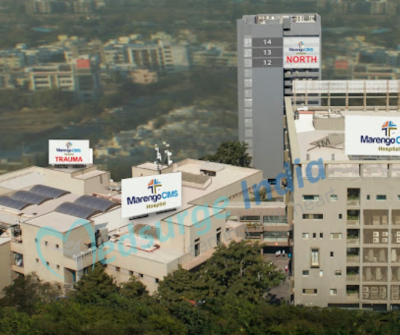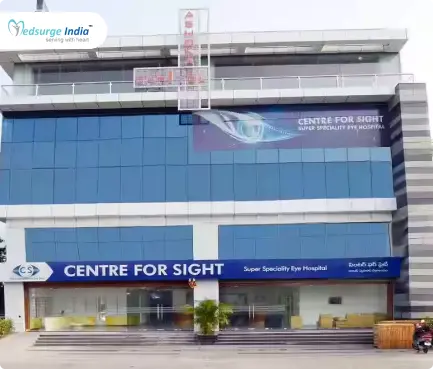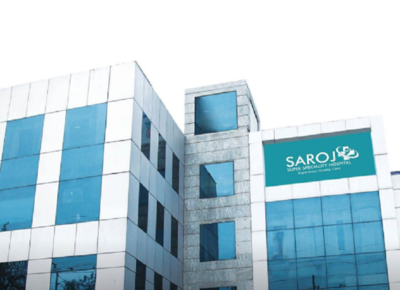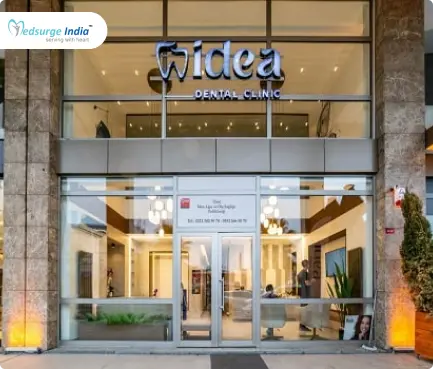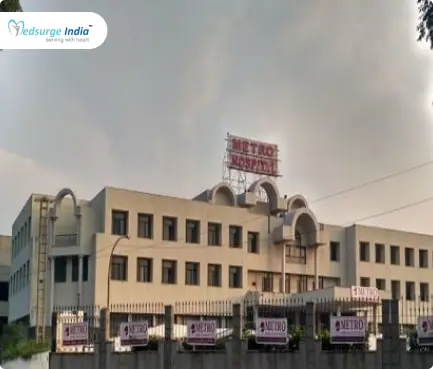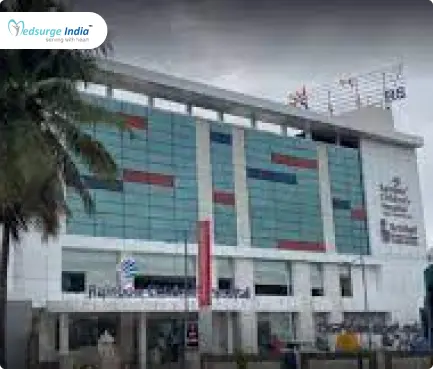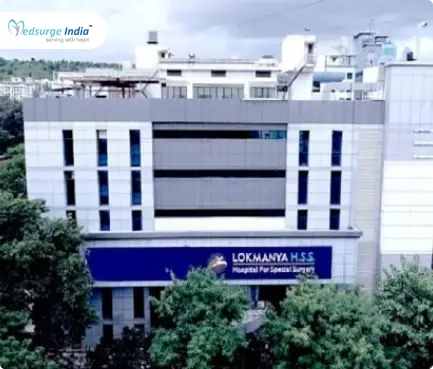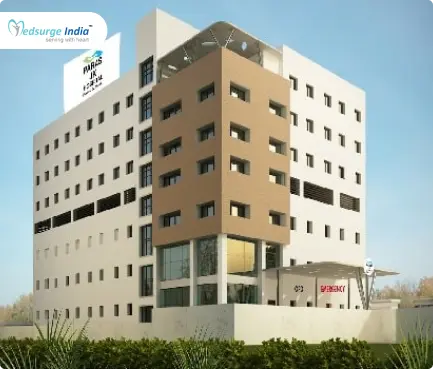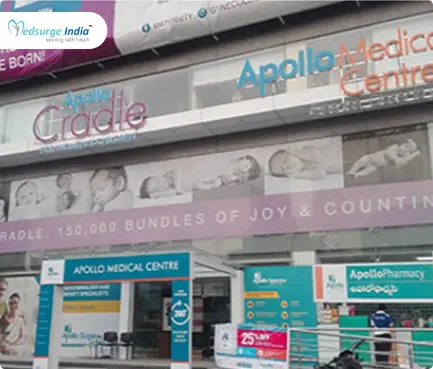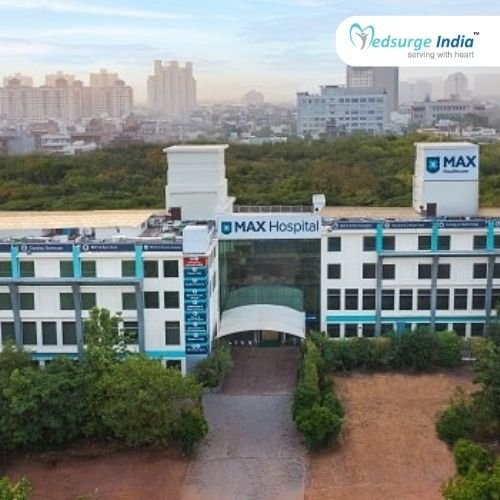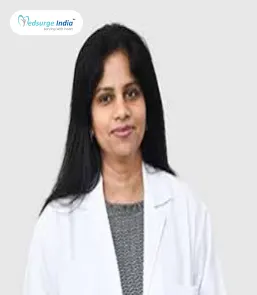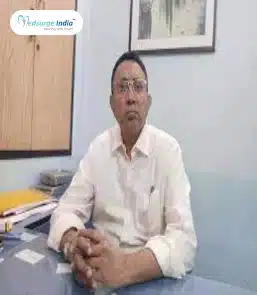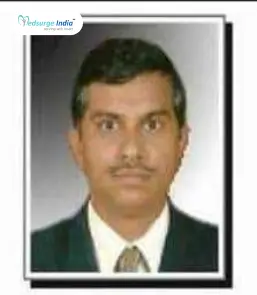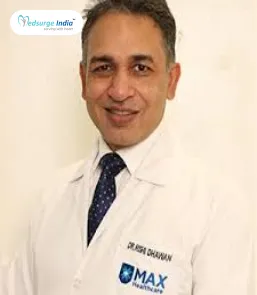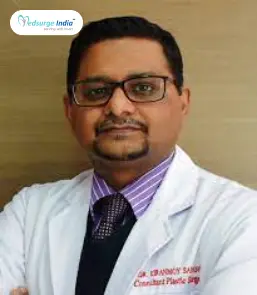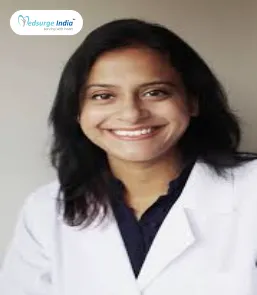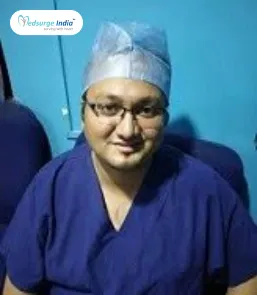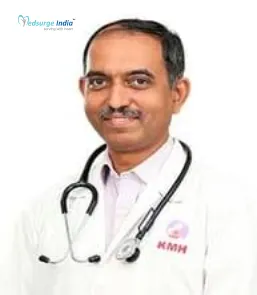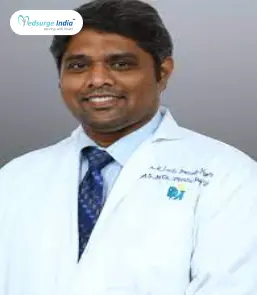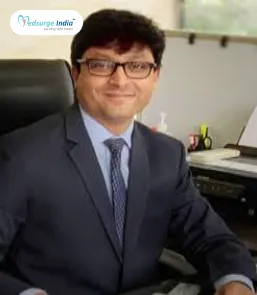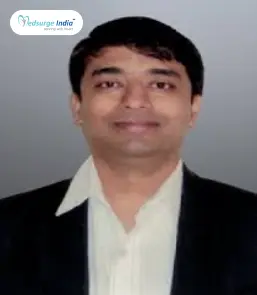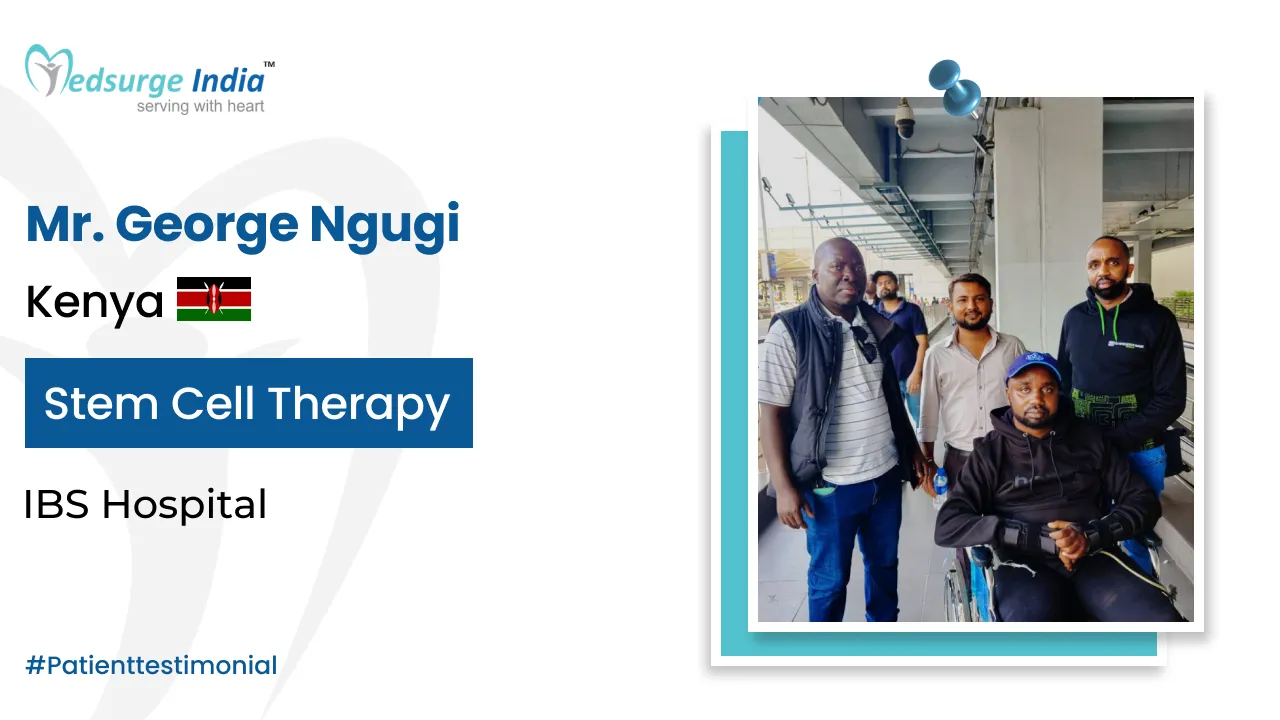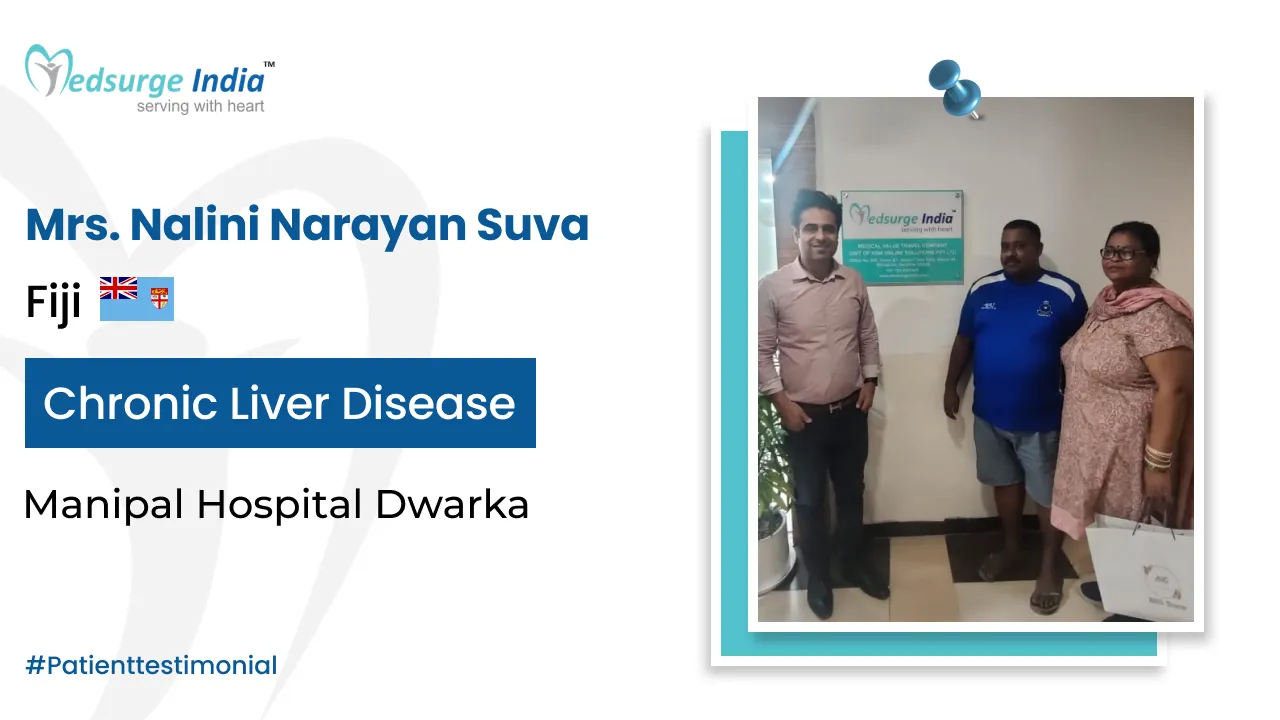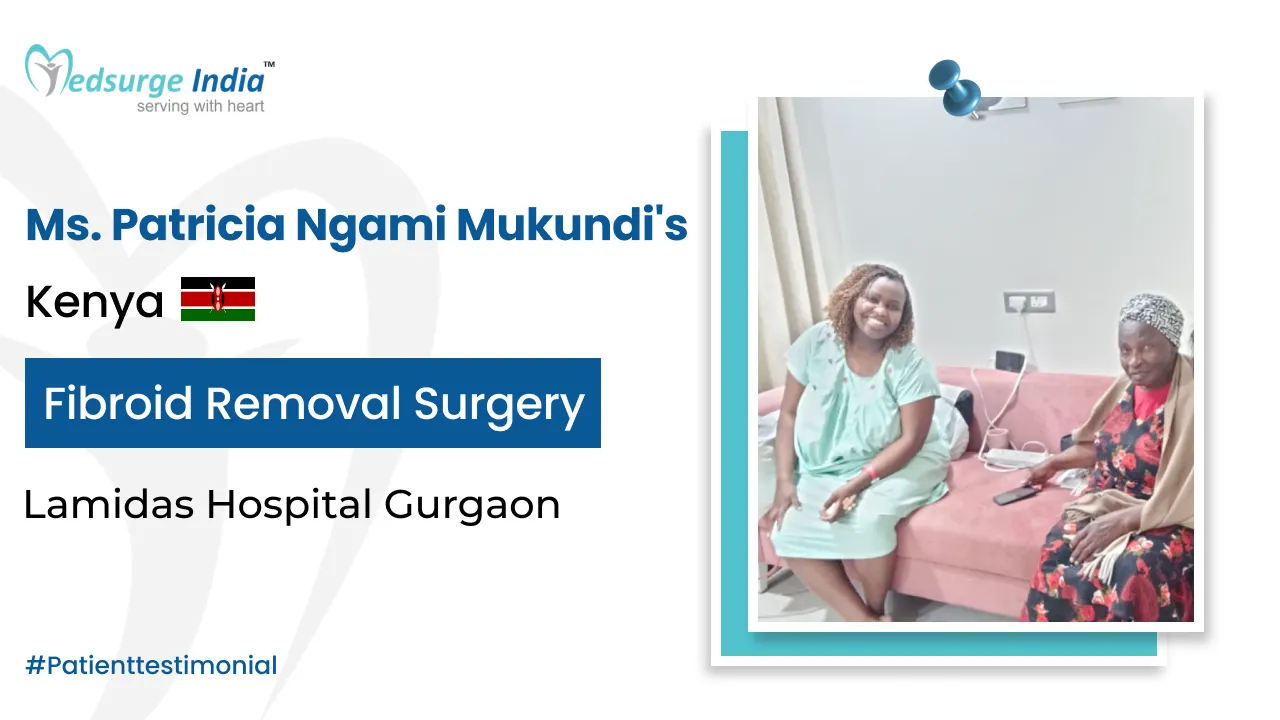
Facial paralysis is an inability to move the muscles of the face on one or both sides. The condition can affect one or both sides of the face, causing visible drooping of the features as well as difficulty in speaking, blinking, swallowing saliva, eating, or communicating through natural facial expressions.
Facial Reanimation Surgery in India, also known as “Smile Surgery,” is a popular treatment for facial paralysis caused by a brain tumor, Bell’s palsy, trauma, or another reason. Facial paralysis or weakness can have a significant impact on how you function and connect with people. Face reanimation procedures may help in the improvement or restoration of natural face movement.
The Facial Reanimation Surgery Cost in India is comparatively low as compared to other developed countries. The total treatment cost plan depend upon the severity of deformities of the face, medical condition of the patient and types facility chosen by the patient.
What Is Facial Reanimation Surgery?
Face reanimation is a specialized surgical procedure used to repair or replace a damaged face nerve that has become irreversibly harmed, resulting in facial paralysis.
Facial Reanimation Surgery in India is performed by Best Cosmetic and Plastic Surgeons of India who have substantial knowledge and expertise in treating concerns affecting the facial nerves. During your initial appointment, your surgeon will ask you questions about the nature of the incidents that caused facial paralysis, how long you have been paralyzed, and if you have had any previous surgeries or non-surgical therapies such as therapy to reverse the damage. If you have copies of earlier pictures or video scans, your doctor will want a copy to review the results.
Who Requires Facial Reanimation Surgery in India?
Not everyone suffering from facial paralysis requires facial reanimation. Without therapy, the paralysis can improve with time, but it is still essential to consult an expert to determine the reason for your facial weakness.
In certain cases, doctors can recommend Facial Reanimation Surgery in India:
- You do not recover completely on your own.
- Nonsurgical treatments are not successful (e.g., steroids, Botulinum toxin injections, physical therapy or occupational therapy).
- You suffer from significant physical disability or an extensive medical condition.
- You are either too old or too fragile.
- There has been far too much time since the paralysis occurred.
Facial Reanimation Surgery Cost in India
Affordable Facial Reanimation Surgery Cost in India starts from INR 2,25,043 (2,700 USD). The patient must spend one day in the hospital and seven days out of the hospital. The entire cost of treatment is determined by the diagnosis and facilities chosen by the patient. The total cost of Facial Reanimation Surgery in India is determined by the following factors:
- Nursing and Dietician’s fees
- Cost of Initial Evaluation and Diagnosis
- Cost of the Surgery and Treatment
- During admittance, the room type was selected.
- The duration of stay and recovery.
- The patient’s health status, as well as any other existing conditions such as diabetes, hypertension, obesity, and so on.
Get Free Cost Estimation
Procedure
What Is the Treatment for Facial Paralysis in India?
A specialized and specific treatment approach is required for the treatment of the paralyzed face. These procedures often require a staggered approach. Congenital malformations (such as Moebius syndrome) and acquired issues such as tumor removal, Bell’s palsy, or trauma can all cause facial nerve paralysis.
The seventh cranial nerve, the facial nerve, innervates the muscles of facial expression. Cervical, marginal mandibular, buccal, zygomatic, and frontal are the five major branches. Each innervation provides motor function (contraction) to different face muscles. The buccal and zygomatic branches are the most functionally important because they innervate the muscles that control oral competence (avoid drooling), voluntary eye closure, and smiling.
Facial paralysis can be temporary or permanent. The optimum treatment is determined by the team of Facial Reanimation Surgery in India depending on how long the paralysis has been present, the reason, and whether it is a complete or incomplete (or partial) paralysis.
What Is the Facial Reanimation Surgery Cost in India?
The Cost of Facial Reanimation Surgery in India for patients all around the world starts from USD 2700.
The patient must spend one day in the hospital and seven days out of the hospital. The entire cost for treatment is determined by the diagnosis and facilities chosen by the patient. The total Cost of Facial Reanimation Surgery in India is determined by the following factors:
- The patient’s health status, as well as any other existing conditions such as diabetes, hypertension, obesity, and so on.
- During admittance, the room type was selected.
- The duration of stay and recovery.
How Many Types of Facial Reanimation Surgery Available in India?
One or more of the following procedures may be included in Facial Reanimation Surgery in India:
- Static Procedures
- Dynamic Rehabilitation
During Static Procedures – A Static Surgical Procedure in India is used to restore the symmetry of the face, but it does not reanimate facial muscles. Static methods are employed to address the eyes, brows, and lower face.
A surgeon may address the eyes by implanting a small platinum or gold weight within the upper eyelid to help close and tighten the lower eyelid at the same time. Static facial reanimation reduces the uncomfortable feeling of dry eyes and protects the eye from injury.
To address the eyebrows, the surgeon might perform a brow lift to improve forehead symmetry and any visual distortions caused by a heavy eyebrow. Static procedures to the lower two-thirds of the face are carried out by creating a sling under the skin with tissue from the thigh. This allows for maintaining facial symmetry while also supporting the nasal base and promoting nasal ventilation.
In Dynamic Rehabilitation – The method of Dynamic Face Rehabilitation in India is essential to restore symmetrical and purposive facial movements and tones. There are multiple possibilities for Facial Reanimation Surgeries available in India:
Nerve Grafting: The procedure of Nerve Grafting in India is used to restore muscular control by transferring a nerve from one part of the body to the face. Usually, sensory nerves from the neck or lower leg are extracted and used as a graft between the main trunk of the face nerve and an adjacent branch or branches of the nerve.
Cross Face Nerve Grafting – The cross face procedure is used to treat individuals who have chronic or long-term facial paralysis caused by nerve injury. When the peripheral branches of a nerve and face muscles are intact but the main trunk of the nerve is no longer working, a cross facial nerve graft is usually done.
The Cross Face Nerve Grafting procedure in India joins a branch from the unaffected side of the face to the diseased side of the face by using a sensory nerve (sural nerve) from the lower leg. The purpose of this technique is to produce spontaneous, emotionally triggered facial movement.
Nerve Transposition: A Nerve Transfer in India is a specialized procedure for re-innervating a face nerve with a separate motor nerve. The masseter (chewing nerve) and hypoglossal (tongue nerve) nerves are frequently used to activate facial muscles, allowing for more expressive facial movements. These approaches can be used in combination to help enhance resting facial symmetry and create a more natural smile.
Local Muscle/Tendon Transfer: When a facial nerve is damaged beyond repair, the muscles around it may atrophy or waste away, leaving them inaccessible. To help a person smile, a surgeon will transfer muscles or tendons, most commonly the temporalis tendon.
Free Muscle Transfer: In individuals who have undergone irreversible facial paralysis, a Free Muscle Transfer in India is performed in two different surgical steps to produce synchronous facial movement. To create a natural-looking smile, a muscle from the inner thigh (gracilis muscle) is attached to the masseter nerve (chewing nerve). It is a complicated procedure that requires the use of a microsurgery expert.
How Recovery After Facial Reanimation Surgery is Done?
Facial Reanimation Surgery in India is usually performed as an outpatient treatment. You are going to awaken from anesthesia in the recovery room following your procedure. You’ll need to arrange for someone to drive you home from the hospital. Your medical care team will provide you with extensive post-op guidelines as well as a prescription for pain medication to help you get through the initial few days of recovery.
You should be able to resume normal activities two to three weeks after surgery, and you should be able to move your face in four to six weeks. After you have recovered sufficiently, Cosmetic surgeons will recommend you to a physical therapist who will assist you in learning how to move and use your face. A small secondary surgery may be required a few months following your initial procedure to address cosmetic concerns.
How Can Medsurge India Help?
Medsurge India is a prestigious support system for patients looking for doctors, hospitals, and specialized treatments. We’ll find the most suitable medical options for you. Regarding your medical issues, our team will give you a list of certified, reputable, and trusted doctors and hospitals. Additionally, we offer a treatment strategy that fits your budget. Apart, we assist patients with obtaining travel authorizations, medical visas, and a multitude of other things.
The Most Important Frequently Asked Questions
Q: What Is the Timing of Facial Nerve Reanimation?
A: GENERAL CONCEPTS OF FACIAL REANIMATION Regenerative activity is highest at 21 days after damage. The facial nerve regenerates at an average speed of about 1 mm every day. Facial injuries recover faster and have a better prognosis than proximal injuries (CPA: 18 months).
Q: What Muscles Are Used in Facial Reanimation?
A: What is the procedure for facial reanimation surgery?
In this operation, surgeons take healthy muscle tissue from another part of the body, such as the leg, and transplant it into the paralyzed side of the face. The healthy muscle is positioned correctly by the surgeons to facilitate active facial movements, such as smiling.
Q: How Many Different Face Muscles Do We Use?
A: The face has 42 distinct facial muscles. The researchers worked with persons who have been particularly trained to be able to activate all 42 of these muscles in order to evaluate how each of these muscles affects facial expressions.
Q: What Are the Risks of Nerve Repair Surgery?
A: Nerve transplant surgery includes the same risks as any other form of surgery, including infection, scarring, and wound healing difficulties. It is also likely that you will not attain the expected level of function recovery.
Q: Is It Safe to Get Facial Reconstruction Surgery?
A: Although plastic surgery is extremely safe, no medical operation is without dangers. This is true both during the surgery and during the recuperation period. Before scheduling an elective surgery, you should investigate the qualifications of the surgeon.
Top Hospitals for Facial Reanimation Surgery in India
Top Doctors for Cosmetic And Plastic Surgery
Dr. Kiranmayi Atla
Consultant
Experience: 15 years of experience
Indraprastha Apollo Hospital New Delhi
Faridabad, India
Dr. Vidya Subramaniyan
Consultant
Experience: 12 years of experience
Apollo Spectra Hospital, Chennai
Chennai, India
Dr. Arun Ganguli
Consultant
Experience: 15 years of experience
Medica Superspecialty Hospital
Kolkata, India
Dr. Rishi Dhawan
Principal Consultant
Experience: 15 years of experience
Max Superspecialty Hospital, Mohali
Mohali, India
Dr. Kiranmoy Sarangi
Consultant
Experience: 15 years of experience
Manipal Hospitals Dwarka, Delhi
New Delhi, India
Dr. Devayani Barve Venkat
Consultant
Experience: 11 years of experience
Nanavati Super Specialty Hospital Mumbai
Mumbai, India
Dr. Anirban Ghosh
Visiting Consultant
Experience: 10 years of experience
AMRI Hospital, Kolkata (Dhakuria)
Kolkata, India
Dr. R Bharat
Senior Consultant
Experience: 25+ years of experience
Brahmananda Narayana Multispeciality Hospital, Jamshedpur
Jamshedpur, India
Dr. Samuel Ebenezer
Consultant
Experience: 31 years of experience
Dr. Kamakshi Memorial Hospital Chennai
Chennai, India
Dr. Deepanjan Dey
Consultant
Experience: 13 years of experience
Ruby General Hospital, Kolkata
Kolkata, India
Dr. Leela Praveen Kumar
Consultant
Experience: 13 years of experience
Apollo Hospitals, Greams Road, Chennai
Chennai, India
Dr. Arvind Jain
Senior Consultant , MS, MCh,
Experience: 17 years of experience Noida , India
Noida India
Dr. Pradeep Y V
Consultant
Experience: 20 years of experience
Apollo Hospital, Seshadripuram
Bangalore, India
Dr. Tarun Jain
Senior Consultant
Experience: 23+ years of experience
Max Super Speciality Hospital Dehradun
Dehradun, India



